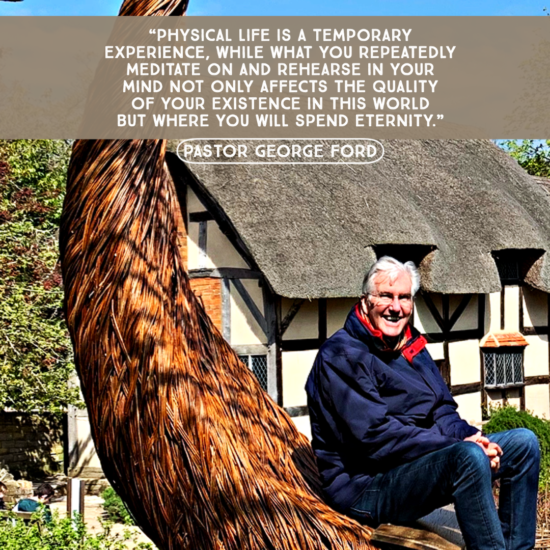

I confess out of my seventeen and a half years of ministry in local churches, I never experienced burnout. Therefore, you may want to stop reading here. Sure, I was busy, got tired, and even was very weary at times. I received those calls at two and four during the night, many days of making two, three, or more trips to the hospital(s) to visit a parishioner(s), having several funerals some weeks, weddings on consecutive weekends, preaching twice every Sunday, teaching Bible studies during the week, denominational meetings, church meetings, etc. You know the routine.
My heart goes out to those ministers who do experience burnout whether it’s physical, spiritual, mental or relational. I am thankful I did not experience it during my pastoral ministry. However, I did know ministers who were tired, crabby, and grouchy most, if not all, of the time. Some threw in the towel.
Matthew Arnold wrote about a minister in the slums of London’s East End … I met a preacher there I knew, and said to him; “(I’m) Ill and o’erworked, how fare you in this scene? …he said; “for I of late have been much cheer’d with thoughts of Christ, the living bread,” (as quoted in, “New Poems 1867,” fmchr.ch/NewPoems).
These two pastors lived and ministered from two different perspectives. One was ill and overworked—at least in his mind — and the other was much cheered with thoughts of Christ.
Today, there’s much being ballyhooed about: “You are what you eat.” I’m more convinced that you are what you meditate on and continually mull over in your mind, more so than what you eat. Physical life is a temporary experience, while what you repeatedly meditate on and rehearse in your mind not only affects the quality of your existence in this world but where you will spend eternity.
The following reflects my personal observations — correctly or incorrectly — of some pastors who worked begrudgingly, wearisomely, or quit. They weren’t spent because of actual ministry work, but from tangential aspects of church life. To not get burned out, I’d suggest one shy away from the following, but I’m a 74-year-old gray headed guy, what do I know?
DON’T BE EASILY OFFENDED
Their conversations at meetings were usually about how they personally felt, what a member had said that offended them, what the leadership had done that upset and angered them and rehashed other similar incidents in the life of the church. There was no joy in their voice or conversation. Also, they were more interested in what was being served for lunch at the meetings than what was on the agenda.
BE SURE OF YOUR CALLING
I also wondered if some of these pastors were truly called to the ministry in the first place. One pastor told me when he was in college, he thought about many career options and decided going into the ministry would be a nice choice. So, he went to seminary and became a pastor of a local church. His pastoral ministry did not end well.
BE THE SPIRITUAL LEADER NOT THE CEO
Some pastors believe the church they pastored is their church and they are the CEO. Therefore, they did not want any questions or interference when they decided what the church should do or not do. Their approach to ministry did not sit well with the leadership of the local church. This caused them much angst, frustration, and stress pushing them toward burnout.
BE RELATIONAL NOT ADVERSARIAL
Also, I noticed many were at odds with a church committee or a leading church member. They would rehearse what they were going to say in response and when they were going to say it. This heightened their stress level and over-shadowed their total ministry.
BE FOCUSED ON YOUR CURRENT FLOCK
Some pastors didn’t like their churches and were always thinking about ways to “get another church.” Their focus was on where they wanted to be and not where they were. They were anxious and occupied about the move they wanted to make. They were trying to live in the future and aggravated with the present. They were stressed, anxious, and sometimes almost mad.
BE EARLY WITH THE IMPORTANT STUFF
Many of them prepared their sermons on Saturday night. Or pulled an old sermon out of the barrel and dusted it off. They seemed to lack the ability to plan ahead and this added considerable pressure to their lives and ministry.
BE ADVANCING AND NOT RETREATING
Many also seemed to be more concerned about their days off rather than loving the people in the congregation and community where they served. Their attention and focus were not on loving and leading people into a personal saving relationship with Christ, disciplining members and attenders, and growing the local church, so they did these things begrudgingly and frustratingly while they waited for their days off and vacation.
BE FLEXIBLE WITH YOUR TIME
Many were devout advocates of boundaries in their lives. I sensed their boundaries were more to protect their Mondays, Fridays, and Saturdays off than to keep them refreshed and dynamic in their ministry. When ministry obligations got in the way, they were aggravated and very upset. Personal time for self and family is very important, but from time-to-time your priorities must change according to the ministry needs of the congregation.
If you are feeling the symptoms of burnout, get out of the office and go to a coffee shop with your Bible and a piece of paper. Order an Americano, Latte, or Frappuccino and read I John 3:16-18. On the paper write, “Jesus loves me,” and then list all the ways you’ve experienced His love. Then write, “Who do I love?” and list the people, not in groups but individual names. Finally write, “How am I loving these people in word and action?” Then list the people’s name and how you love each of them in word and deed.
This simple exercise may help you focus on people and not your problems and situations. It will also help you gain perspective that ministry is about loving in the Name of Christ. Love is at the very heart of ministry.
May you experience His overwhelming love afresh each day as you minister in the gracious Name that is above every name.
Courage for the journey,
George
About the Author
George F. Ford is a fourth generation Free Methodist and retired elder.
